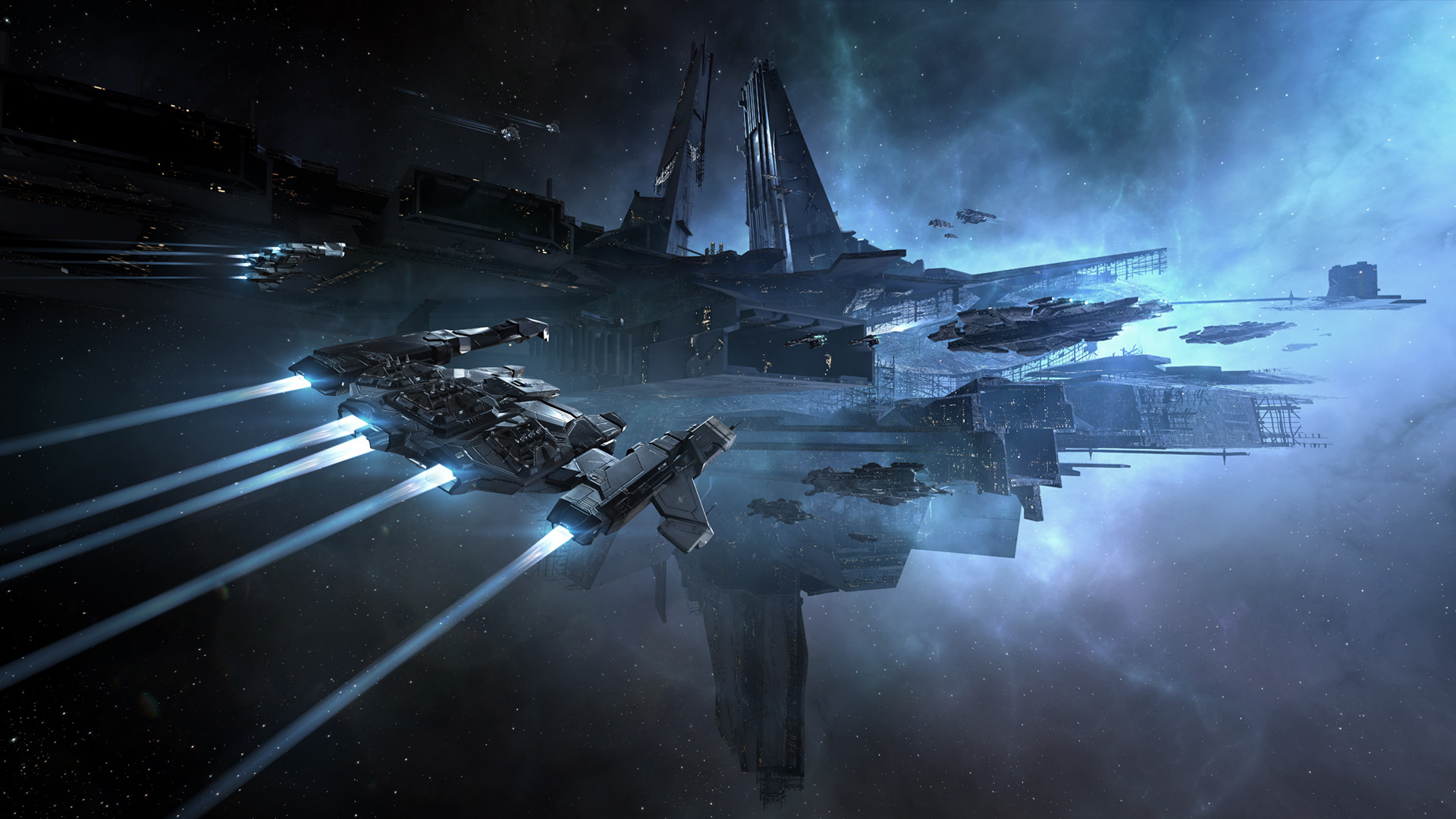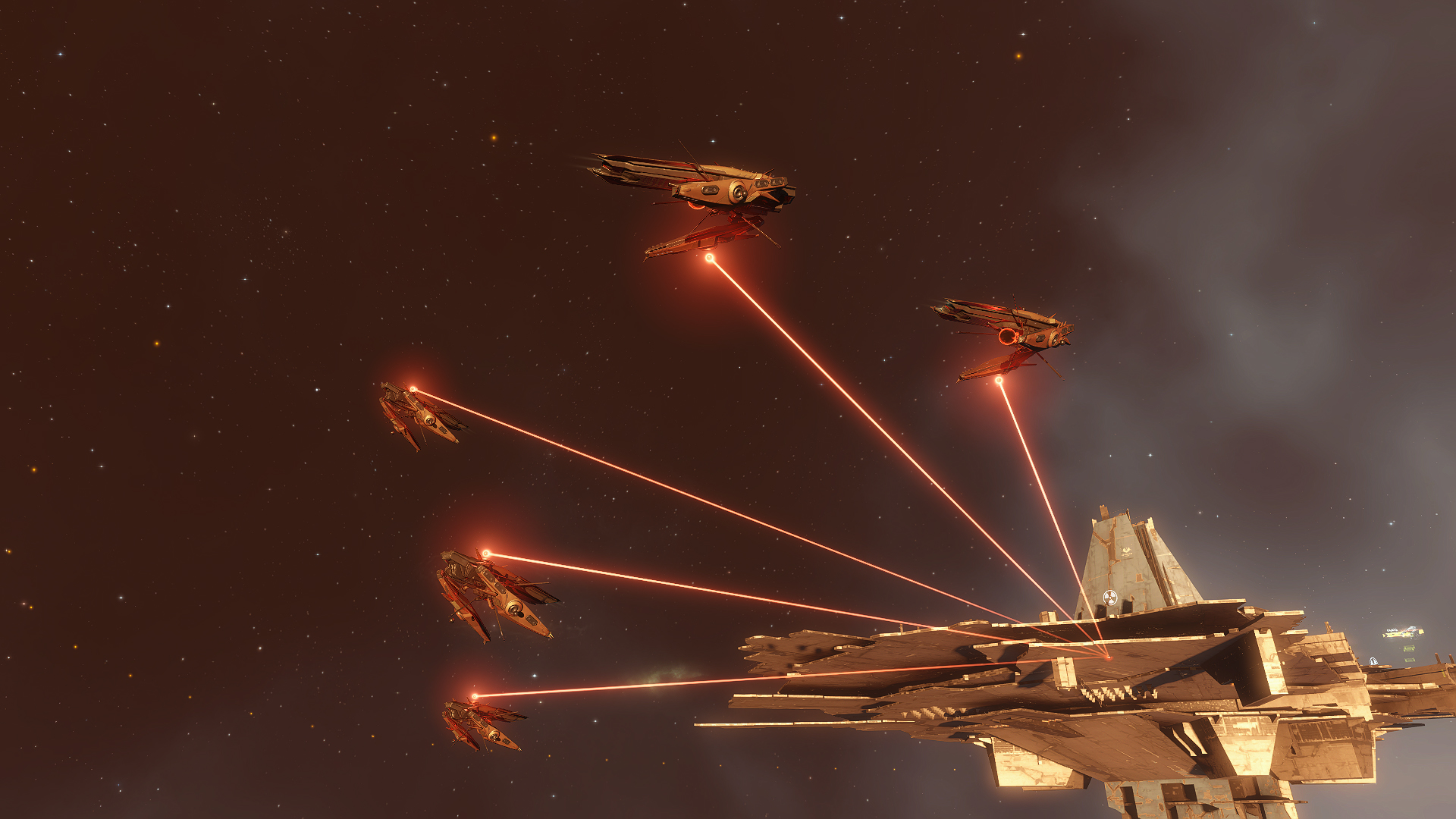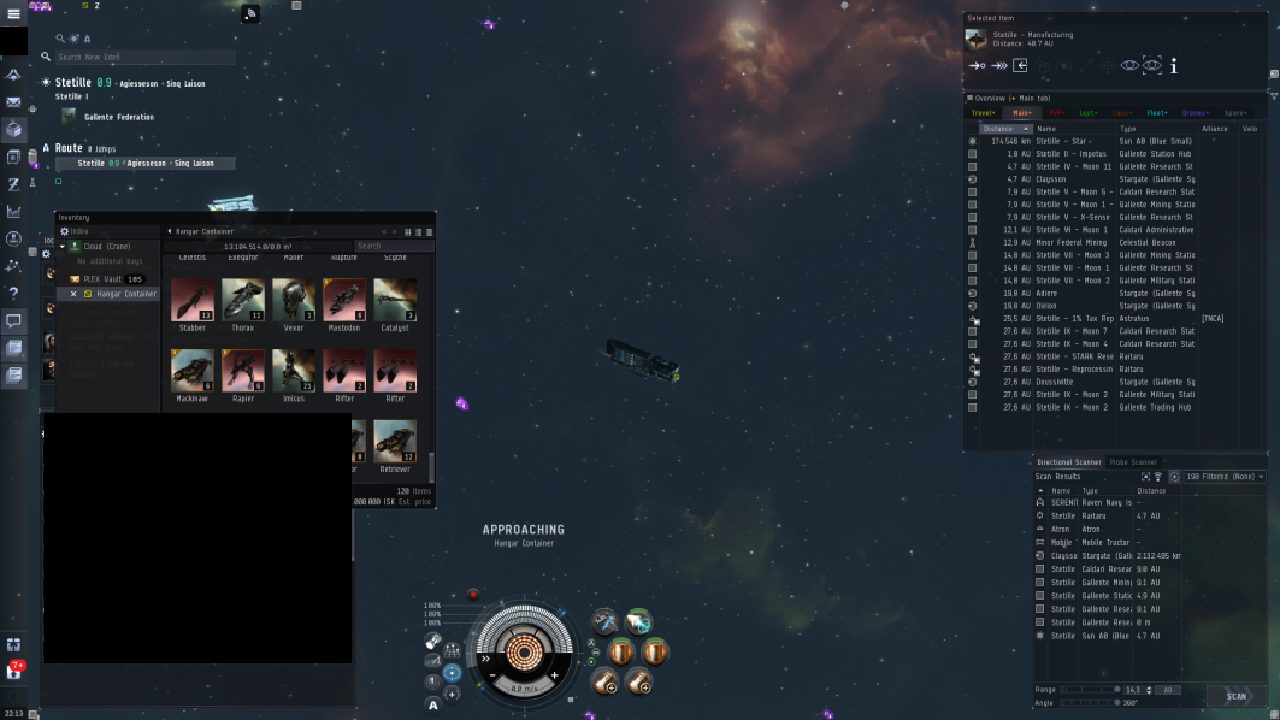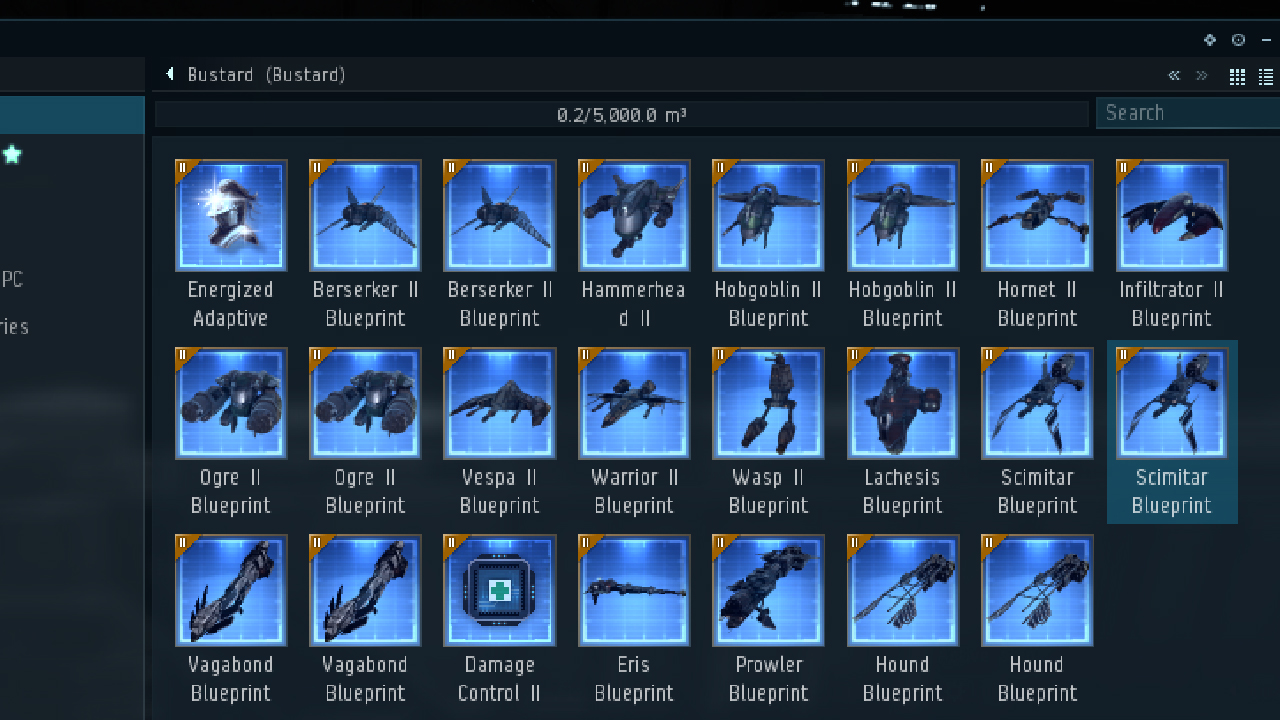This EVE Online pilot just made history by pillaging $60,000 worth of items
Recent changes in EVE Online's rules are seeing an unprecedented redistribution of wealth as hundreds of player-made space stations are destroyed.

EVE Online is going through an unprecedented era of destruction and pillaging. Just last week, developer CCP Games made some small but significant changes to how player-built space stations work, and now dozens of players are raking in unfathomable amounts of cash.
But none more so than Sulley. He's spent the last month orchestrating a marauding marathon, destroying 32 player-owned stations all across the high-sec region of New Eden. Most contained a small fortune of items, but on June 2, Sulley and some close friends hit a Raitaru engineering complex owned by a group of players called Future Tech Industries. Inside, they found the single-biggest loot drop in EVE Online history: 4 trillion ISK-worth of items that, when converted to EVE Online subscription game time, equals roughly $60,000.
"It still shocks me how much value was in a single structure," Sulley tells me over Discord. "It's surreal."
As I write these words, Sulley is still out prowling for more space stations to pillage. And he's not alone, either. Ever since the Forsaken Fortress update went live on May 26, EVE Online players have been forming small warbands and prowling through New Eden's 3,000-plus star systems looking for player-owned stations, called Citadels, to plunder. It's all because Forsaken Fortress changed one crucial rule of EVE's loot system.
Kicking over castles
It still shocks me how much value was in a single structure. It's surreal.
Sulley
When they were first released several years ago, Citadels were billed as a new kind of player-own structure. They were bigger, scarier, and much safer than what players traditionally used to store their ships, modules, and resources. Unlike the previous generation of structures, Citadels have a system called Asset Safety that ensures any items and ships stored within one are transported to a secure location in the event that Citadel is destroyed.
But the problem with Citadels is that, in some players' eyes, they are too safe. That's why in December of 2019, CCP Games introduced the Kicking Over Castles update to give those attacking Citadels more of an advantage. But the Forsaken Fortress update goes even further, by introducing a new system where Citadels that aren't actively maintained by players can become "abandoned," making them easier to tear down. More importantly, abandoned Citadels no longer trigger Asset Safety automatically when destroyed. Anything and everything stored inside becomes fair game.
When Forsaken Fortress was announced a month ago, Sulley was one of many players who saw an opportunity to make big money. "I spent around a week searching through space for Citadels that looked like they might become abandoned when the update was released," he says. "I'd look at information on the corporations, such as characters in the corp, contract histories, recent activity like kills and deaths. This highlighted around 18 or so structures, which I deemed as high interest."
The biggest gaming news, reviews and hardware deals
Keep up to date with the most important stories and the best deals, as picked by the PC Gamer team.
Once Forsaken Fortress went live, the timer would start ticking on Citadels that weren't actively maintained by players. Each would slip into the new abandoned state after a week, with a little extra random variation thrown in to keep things unpredictable. But Sulley is smart: Back in 2018 CCP added a feature where players could deposit cargo inside of a Citadel without actually docking at the station. Sulley didn't have authorization to dock at any of his target Citadels, but this feature allowed him to place an item inside each one so that when the station was at risk of entering the new abandoned state, he, along with the corporation that owned it, would receive an in-game email warning him. Though that email was meant to help defenders, Sulley exploited it to learn the rough timing of when each station would become vulnerable to destruction and pillaging.

With a month to prepare, Sulley registered eight new accounts and began training them to fly Kikimora's, a new destroyer-class ship with damage that scales up over time. By running multiple versions of the EVE client at one time (a common practice among EVE veterans known as "multiboxing"), Sulley could pilot all eight of these accounts at once.
But shooting other players and their stuff is a quick way to get yourself evaporated in high-sec space. An omnipotent NPC police force known as Concord enforces a set of laws that players must abide by unless they've purchased proper authorization and formally declared war. To do that, Sulley had to register a new, independent corporation called Detached Navka and build his own Citadel to act as his corporate headquarters. "With a small fee you can declare war against another corporation owning a structure," he explains. "Then after a cooldown period of 24 hours the two parties can legally fight each other."
Sulley declared war on each of his target Citadels. The next day, he logged all nine of his characters on and, one by one, began whittling down each Citadel's hitpoints. With 9 Kikimoras, it'd take around 30 to 45 minutes to destroy each Citadel, depending on its model and size. Each time a Citadel died, it'd eject up to 200 canisters hundreds of kilometers around the wreckage—each one containing a small fragment of the loot that was stored inside. Sometimes these canisters might contain a few billion ISK worth of items or ships, and other times they'd contain nothing of value. It was a frustratingly long process, but Sulley was persistent.
After the first few Citadels, Sulley drew the attention of other players who happened to notice what was happening. Anyone can loot the canisters dropped by a Citadel, but doing so flags you as a "suspect," giving anyone free license to attack you without consequence. Not only was Sulley risking his own life by opening these containers, but there were so many of them other players could swipe them before he'd have a chance to react. "After the first couple of structures, it became apparent that more help would be needed," Sulley says.
To help, Sulley reached out to friends in Razor, the player alliance he normally flies with. Their job was to run interference on any unwanted bystanders while Sulley quickly flew from container to container checking what was inside and scooping up valuables. If a random player tried to nick the goods, Sulley's friends would pin them down with stasis webifiers, a kind of weapon system that inhibits a ship's thrusters, and blow them up.

Payday
After we realized what we had just done, we could not believe it.
Sulley
On June 2, Sulley and his friends arrived in Stetille, a star system in the Sinq Laison region of high-sec space. In this lonely backwater station was Future Tech Industries' Raitaru Engineering Complex, the smallest manufacturing and research-oriented Citadel of its kind. Like many of the Citadels Sulley had already knocked over, this one appeared to have been abandoned for over a year. Chances were nothing would be inside.
Unlike most of the other Citadels, only one canister dropped from Future Tech Industries' Raitaru. Inside was an enormous amount of stuff—more than any one pilot was equipped to take in one run. Sulley explains that it was a new recruit to his crew that first spotted the loot. "He first called out a freighter with 200 million ISK worth of stuff in its hangar," Sulley says. "At that point I took a look and realized there were over 9,100 items in the can. I thought it was more like 223 billion ISK."
They were both wrong.
Inside that can was a stash of 'blueprint originals' (called BPOs). These items are needed for manufacturing ships, modules, ammo, drones—you name it—and they're the precious foundation of any manufacturing enterprise. Sulley says the rookie pilot saw these, scooped them into his hangar and retreated to the safety of a nearby station. Once he was docked up and secure, he traded the goods back over to Sulley, who finally got a look at them.
In addition to the 223 billion worth of items—a big fortune on its own, Sulley realized the BPOs weren't just your average kind. Twenty three of them were Tech 2, a special variant of blueprint used to manufacture more powerful, specialized versions of items. But what makes T2 BPOs so rare is that CCP Games removed the ability to find new ones years ago. Without a constant source, T2 BPOs have become an increasingly rare collector's commodity valued for their rarity more than their utility. And Sulley just found 23 of them. "After we realized what we had just done, we could not believe it," Sulley says. "The 220 billion was already a huge surprise, let alone finding 23 T2 BPOs."

T2 BPOs are so wildly rare and sought after that, unlike everything else in EVE Online, they have no real price. They sell for as much as players are willing to pay—which roughly amounts to a fuckton of ISK. As of publishing this story, Sulley says he has sold most of the collection for 3.8 trillion ISK, and he still has a few left. It's changed his life in EVE forever.
"I have nothing to compare this with," Sulley says. "But it's going to affect each one of us for the better." He says he's been playing for 12 years and his cut of the 4 trillion ISK haul more than tripled his in-game life savings. It's a haul the likes of which have never been seen in EVE Online in its 17 years—a value that equals roughly one third of EVE Online's biggest battle to date, which involved over 7,500 players. Because ISK can be used to purchase EVE Online subscription time, the real-world dollar value comes out to just short of $60,000.
"I'd for sure say it's at the top of the known drops," Elise Randolph tells me. He's one of EVE Online's most notable players and has also been pillaging abandoned Citadels over the past week. He says the closest comparison is when, during times of war, major player alliances have lost staging systems to their enemy. In those moments, thousands of players lose access to an entire armada of weapons and ships. "But those assets stay out there even if the players can't immediately access them," Elise says. "Many are sold at a discount, or players wait to take the station back. This is unprecedented, though."
Though Sulley and his crew win for the biggest haul ever, players all over New Eden are liberating billions of ISK worth of items from abandoned stations. Just today alone, several hundred Citadels have been destroyed—and the carnage is just beginning. Over the past two years since Citadels first were added to the game, players have erected thousands of them. Many have sat untouched for months and years, with no real incentive to tear them down. Until now.

If you love reading about EVE Online, we had over a dozen more stories just as epic as this one. Check out our special hub, containing years of coverage of EVE Online's wars, betrayals, thefts, and scandals.
I feel so much guilt. Mind you, I feel this guilt as I take their prized ship and strip it down for money.
Elise Randolph
Not everyone is happy about the change though. When CCP Games first introduced Citadels, they were sold as a way to permanently protect your assets even if you stopped playing EVE for a significant period of time. I'm told by multiple players that CCP Games sent out emails to lapsed accounts announcing the change and communicating the risk should players not log back in to transfer their assets out of abandoned Citadels to NPC-owned space stations where they'd be truly safe. But many players are cognizant of the fact that they're effectively stealing from those who aren't around to protect themselves.
"I am in mixed minds about it," Sulley admits. "On one hand, redistributing old assets allows for existing players to be more engaged and to enjoy the game more, like myself and my corpmates. But also there's the fact that one group of players just lost an enormous amount of wealth, if not all of it."
"I think it's a bit lame," Elise agrees. "The designers pushed players into these structures and told them for years hey these are safe and better than the alternative. Obviously they decided the proliferation was bad for the game and changed their mind, but every time I loot another ship and I can see someone put their everything into it, I feel so much guilt. Mind you, I feel this guilt as I take their prized ship and strip it down for money, haha."
It's a debate that continues on EVE Online's forums and subreddits, but it's a change CCP Games clearly thinks is for the better. Over the years, EVE Online has oscillated between being too safe and too dangerous, and after years of players complaining about the former, New Eden is entering a dangerous new chapter. Right now, even, alien invaders are slowly taking over different systems and turning them into lawless, violent wastelands. And last June, a separate alien invasion threw all of EVE Online into chaos while CCP routinely experiments with different ways to make its galaxy frightening. But, if you take a page from Sulley's playbook, what matters isn't whether you think it's wrong or right—it's whether you can turn it into an opportunity to make bank.
With over 7 years of experience with in-depth feature reporting, Steven's mission is to chronicle the fascinating ways that games intersect our lives. Whether it's colossal in-game wars in an MMO, or long-haul truckers who turn to games to protect them from the loneliness of the open road, Steven tries to unearth PC gaming's greatest untold stories. His love of PC gaming started extremely early. Without money to spend, he spent an entire day watching the progress bar on a 25mb download of the Heroes of Might and Magic 2 demo that he then played for at least a hundred hours. It was a good demo.


